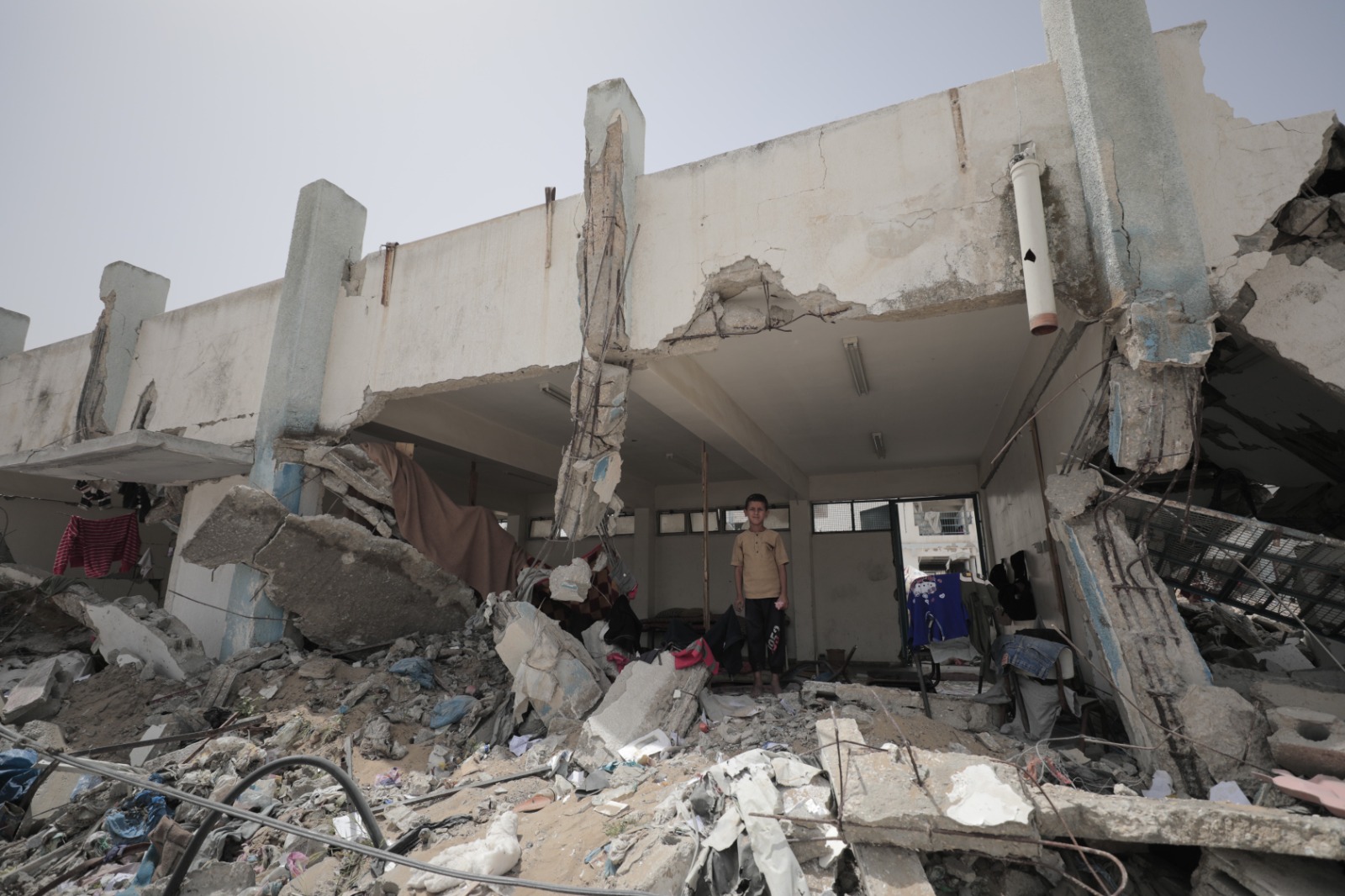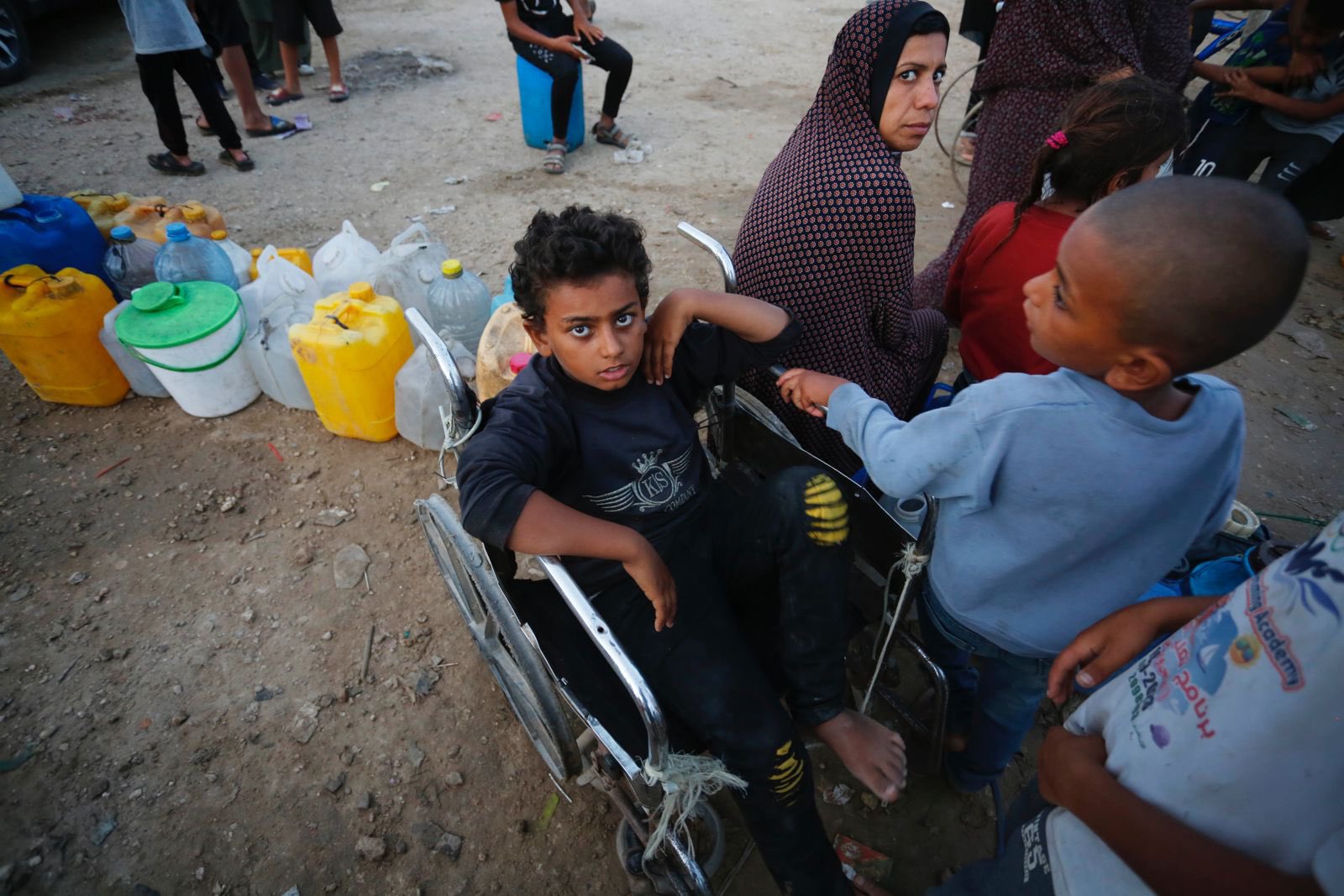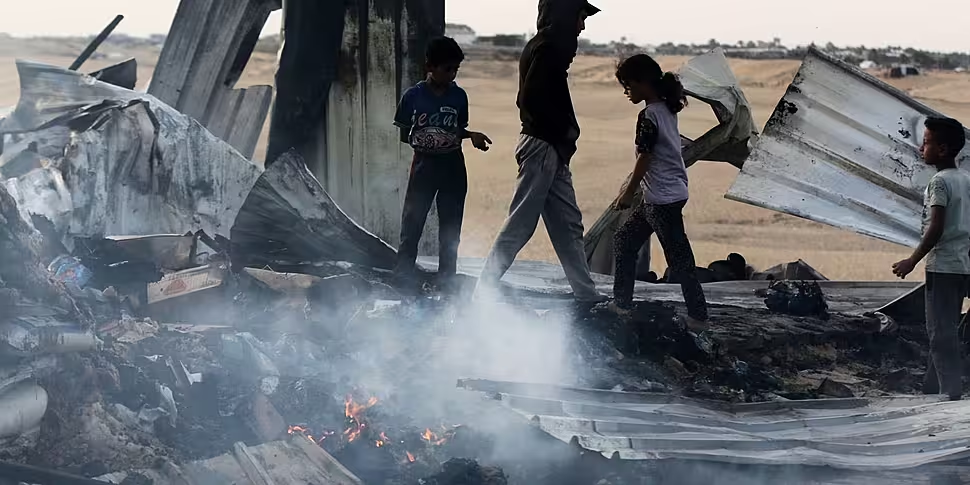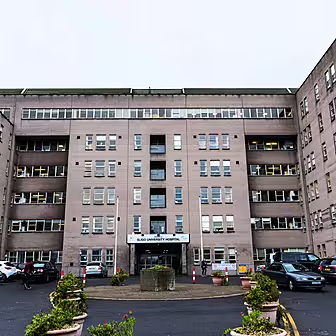An aid worker in Gaza has said she 'cannot find the words' to describe the 'catastrophic humanitarian crisis' in Palestine.
It comes after 45 people were killed in Israeli airstrikes on a refugee camp of displaced civilians in Rafah on Sunday.
The US has refused to say a red line was crossed and that the situation in southern Gaza is not enough to stop providing the Israelis with military aid, despite reports tanks are now in the city centre.
US President Joe Biden has previously said he would stop supplying artillery shells and other weapons to Israel if they proceeded with a ground invasion of Rafah.
ActionAid Palestine Communications Coordinator Riham Jafari told The Pat Kenny Show aid workers are doing all they can.
"[We] are working under unimagable conditions in the middle areas and in Rafah," she said.
"Also we are working for partners there in Gaza who have also staff and volunteers and some technical and professional workers trying to respond to the needs and to this crisis under very, very, very difficult and hard conditions.
"Due to the continuous bombing, due to the closure of border crossings and the hindering of humanitarian aid to Gaza".
 Children are seen at a UNRWA schools in Khan Younis in Palestine, 11-5-24. Image: X/@UNRWA
Children are seen at a UNRWA schools in Khan Younis in Palestine, 11-5-24. Image: X/@UNRWAMs Jafari said those worst affected have already been moved several times.
"They are part of the population who are affected, who were displaced many times - moving from one place to another, searching for a safe place in Gaza," she said.
"There is no safe place in Gaza and there is nowhere to go to find shelter that could protect them and their families."
'Tell the world'
Ms Jafari said the majority of people on the frontlines are local Palestinians.
"There are some international colleagues from other international organisations but there are many restrictions impedining the entrance... of international staff to Gaza, including international journalists," she said.
"The Palestinian workers, the local workers are doing great work responding to the humanitarian needs of the people.
"[They are] checking their needs, assessing their needs, communicating with organisations... documenting the situation on the ground to tell the world from another angle, from a humanitarian angle what is happening in Gaza".
 Children are seen in Rafah in Palestine, 28-5-24. Image: X/@UNLazzarini
Children are seen in Rafah in Palestine, 28-5-24. Image: X/@UNLazzariniMs Jafari said the aid workers are affected like everyone else being "evacuated from one place to another".
"Sometimes the humanitarian response, especially delivering the food and hygiene kits, is stopped.
"These workers are trying to move... but because of the hindering of the work of the humanitarian organisations sometimes we do not have fuel for trucks to deliver the aid for different parts of Gaza.
"Fuel has not been delivered to Gaza which is needed for the operating of the water sanitation, the operation of hospitals, for the bakers and this impeded the work of humanitarian organisations.
"Since the beginning of the ground invasion of Rafah only 200 trucks delivered [aid] to Gaza.
"Gaza needs, according to the latest estimations of some organisations, 1,500 trucks daily to cover the increasing needs".
Ms Jafari said people can also not find water in what she described as a situation "beyond description".
"We cannot find the words to describe the catastrophic humanitarian crisis in Gaza".
Ms Jafari added that women in Gaza have resorted to using "pieces of nylon tents" as an alternative to sanitary products.
Listen back here:









